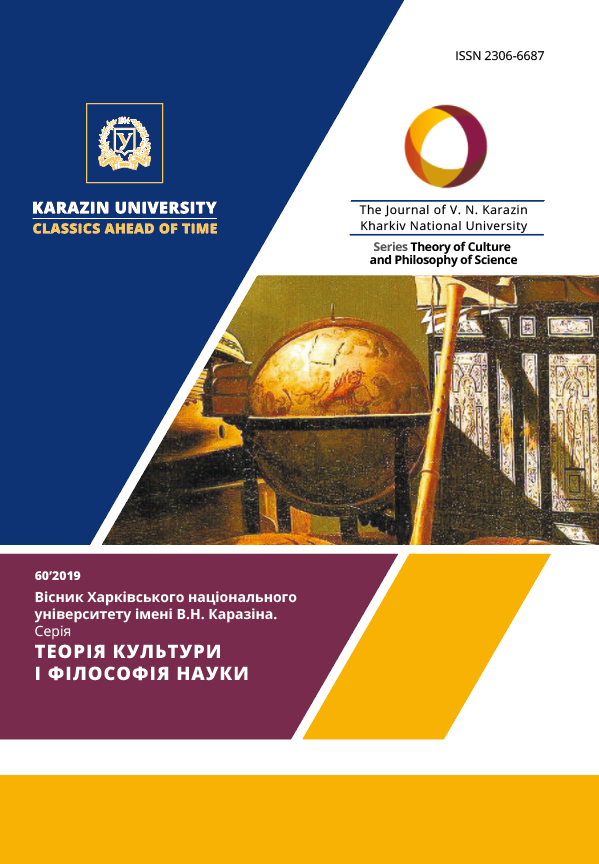ІМПЛІКАЦІЇ КОНЦЕПТУ «ЗАГАЛЬНЕ БЛАГО» ДЛЯ ПОЛІТИЧНОГО ЛІДЕРСТВА
Анотація
Політична спільнота створюється задля забезпечення кращого життя громадян. Для забезпечення виконання цього завдання політичні спільноти обирають або призначають лідерів, на яких покладають відповідальність за керівництво та організацію суспільних процесів. Ефективні політичні лідери допомагають своїм спільнотам розвиватися економічно та допомагають громадянам покращувати рівень життя. Вони стурбовані загальним благом суспільства. Невмілі та неефективні лідери часто турбуються про власні егоїстичні інтереси та приносять нещастя і страждання своїм народам. Незважаючи на ідеали гарного керівництва та позитивні цінності праці задля інтересів суспільства та загального блага спільноти, все ж є багато політичних лідерів, для яких важлива лише влада. Через це існує багато нерозвинених і бідних суспільств, особливо на Глобальному Півдні. У цій роботі використовуються критичний, аналітичний та герменевтичний методи для вивчення та оцінки концепції загального блага та її значення для політичних лідерів. Розглядається контекст філософського осмислення загального блага від Платона і Аристотеля до Д. Локка і Ж.-Ж. Руссо. Цінність загального блага застосовується для кожного суспільства. Політичні лідери скрізь мають прагнути до загального блага. У статті продемонстровано, що неефективні та корумповані політичні лідери досі переважають у багатьох суспільствах світу. У статті робиться висновок про необхідність акцентувати цінність загального блага, на яку повинні орієнтуватися політичні лідери, що допоможе досягти вищого рівня миру та злагоди у політичних суспільствах.
Завантаження
Посилання
Acemoglu, D. & Robinson, J. A. (2013). Why Nations Fail: The Origins of Power, Prosperity and Poverty. London: Profile Books.
Adefarasin, V. O. (2015). Effective Leadership as the Basis for Nigeria’s Quest for Development. In Nationalism and Economic Justice in Nigeria (pp. 730–746). (Y. K. Salami, J. O. Famakinwa & G. Fasiku, Edit.). Ile-Ife, Nigeria: Obafemi Awolowo University Press.
Adesanwo, A. S. (2010). In Search of Leadership: Transformational Management of Nigeria for Year 2010 and Beyond. Lagos: A1 Investment.
Agaba, J D. & Daniel, E. (2010). Beyond the Rhetorics of Statecraft in Africa: Search for a New Paradigm of Leadership in Nigeria. In Perspectives on Leadership in Africa (pp. 103–114). (Egodi Uchendu, Pat Uche Okpoko & Edlyne Anugwom, Edit.). Nsukka: Afro-Orbis Publishers.
Arab Spring. (2020). Retrieved from: https://www.history.com/topics/middle-east/arab-spring.
Arinze, N. (2014). Political Leadership and State Failure in Africa: Lessons from the Central African Republic. In Politics and Law in Africa (pp. 174–187). (Aloysius-Michaels Okolie, Onyemaechi A Eke & Paul A. Areo, Edit.). Abakaliki, Nigeria: Willy Rose & Appleseed.
Aristotle. (1984). Politics. (C. Lord, Trans.). Chicago: University of Chicago Press.
Aquinas, Th. (2002). St Thomas Aquinas: Political Writings. (R. W. Dyson, Trans.) Cambridge: Cambridge University Press.
Augustine. (1998). The City of God against the Pagans. (R. W. Dyson, Trans.). Cambridge: Cambridge University, Press.
Ayeni-Akeke, O. A. (2008). Foundation of Political Science. Ibadan: Ababa Press.
Cicero. (1926). De Legibus. Loeb Classical Library. (C. W. Keyes, Trans.). Cambridge: Harvard University Press.
Cohen, Hsin-Yi. (2020). A Political Leader. Retrieved from: http://www.leadershipexpert.co.uk/political-leader.html.
Etzioni, A. (2020). Common Good. In The Encyclopedia of Political Thought (pp. 1–7). (Michael T. Gibbons, Edit.). Hoboken, N J: John Wiley and Sons. DOI:10.1002/9781118474396.wbept0178.
Federal Republic of Nigeria. (2011). 1999 Constitution of the Federal Republic of Nigeria with Amendments.
Hussain, W. (2020). The Common Good. In The Stanford Encyclopedia of Philosophy. (E. N. Zalta, Edit.). Retrieved from: https://plato.stanford.edu/archives/spr2018/entries/common-good/.
Rousseau, J.-J. (1997). The Social Contract and Other Later Political Writings. (V. Gourevitch, Transl.). Cambridge: Cambridge University Press.
Lee, S. (2020). Common Good. In Britannica Online Encyclopedia. Retrieved from: https://www.britannica.com/print/article/128312.
Locke, J. (1988). Two Treatises of Government. Cambridge: Cambridge University Press.
Manning, G. Curtis, K. (2003). The Art of Leadership. Boston, MA: McGraw-Hill.
Mansbridge, J. (2013). Common Good. In The International Encyclopedia of Ethics, Volume II (pp. 913–926). (H. LaFollette, Edit.). Malden, MA: Blackwell Publishing.
Mayana, E. (2013). Strengthening Ethical Political Leadership for Sustainable Peace and Social Justice in Africa: Uganda as a Case Study. In African Journal on Conflict Resolutions (pp. 113–146). 13(2).
Nwozor, A. (2014). Political Leadership, Poverty and the Failed State Syndrome in Africa. In Politics and Law in Africa (pp. 150–173). (Aloysius-Michaels Okolie, Onyemaechi A Eke, Paul A Areo, Edit.). Abakaliki, Nigeria: WillyRose & Appleseed.
Plato. Republic. (1941). (F. M. Cornford, Trans.). Oxford: Oxford University Press.
Pontifical Council for Justice and Peace. (2005). In Compendium of the Social Doctrine of the Church. Nairobi. Kenya: Pauline Publications Africa.
Uchendu, E. Okpoko, P. U. & Anugwom, E. (2010). Introduction: Discourse on African Leadership. In Perspectives on Leadership in Africa, Anugwom (pp. 1–15). Nsukka: Afro-Orbis Publishers.
Ukaegbu, C. C. (2010). Development Lag and the Imperative of Transformational Leadership in Sub-Saharan Africa. In Perspectives on Leadership in Africa (pp. 16–48). (Uchendu, E. Okpoko, P. U. & Anugwom, E., Edit.). Nsukka: Afro-Orbis Publishers.
Constitution of Ukraine. (1996). Retrieved from: http://extwprlegs1.fao.org/docs/pdf/ukr127467E.pdf.
US Constitution. (2020). Retrieved from: https://www.law.cornell.edu/constitution/index.html.




